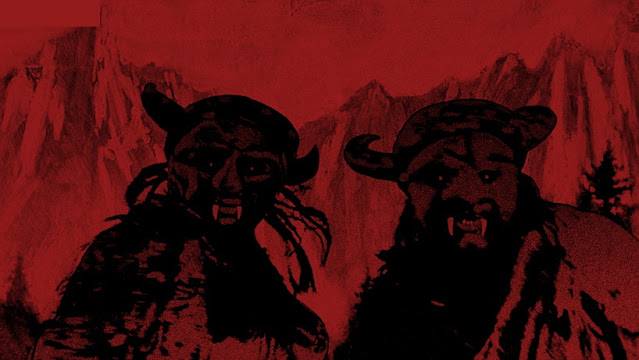 Orcish Divinities & Cults
Orcish Divinities & CultsWhere Orcs Came From
1. Warped and corrupted elves, done by one or more demon lords.
2. Lemurian-type hideous merging of fell men and beast.
3. Experimentations, likely by some mad wizard, made to be his merciless, splenetic, loyal foot troops (though they ended up betraying him anyway).
4. A naturally occurring race, nevertheless still naturally brutal and evil.
Orc philosophers are surprisingly unclear on the matter.
In any case, orcs follow abominable entities, whether Orcus, the quintessential orc divinity (likely after whom the race was named), other demon lords, arch-devils, evil gods, other orc divinities of their own, or even corruptions of the wholesome gods that humans might follow. The latter is especially understandable since orcs cannot really create, they can only pervert.
What Orcs Worship (d6)
1. Orcus (see Volume II)
2. a random arch-devil or evil god (e.g. Nergal- see Volume III)
3. a random demon lord (e.g. Chernobog - see upcoming Volume IV)
4-6. another specifically orc divinity (deity or demon lord- see below)
Random Orc Divinity Generator
Roll 1d2 times on the following table. Each one indicates part of the orc deity or demon lord's name translated in the human tongue, along with which special abilities its followers typically have* (defined in Part I).
1d12
1. King (Orc Chieftain)*
2. Axe (Orc Warrior)
3. Magic (Magic Orc)*
4. Hand (Orc Degenerate)
5. Fire (Orc Pillager)
6. Fist (Orcish Pugilist)
7. Black (Orc Militant)
8. Eye (Orc Warlord)
9. Evil (Orc Witchdoctor)*
10. Master (Golden Orc)
11. Blood (Orcish Manslayer)
12. Wild (Orc Savage)
Then roll to see what the name ends with (1d3).
1. 'God': obeyed by orcs in a way reflecting some religious zeal, but is ultimately depraved.
2. 'Demon': orcs follow it with open depravity.
3. 'Orc': seen as a great ancestor that has achieved godhood or demonhood.
Next week: our series on folk concludes for a time with goblins!
